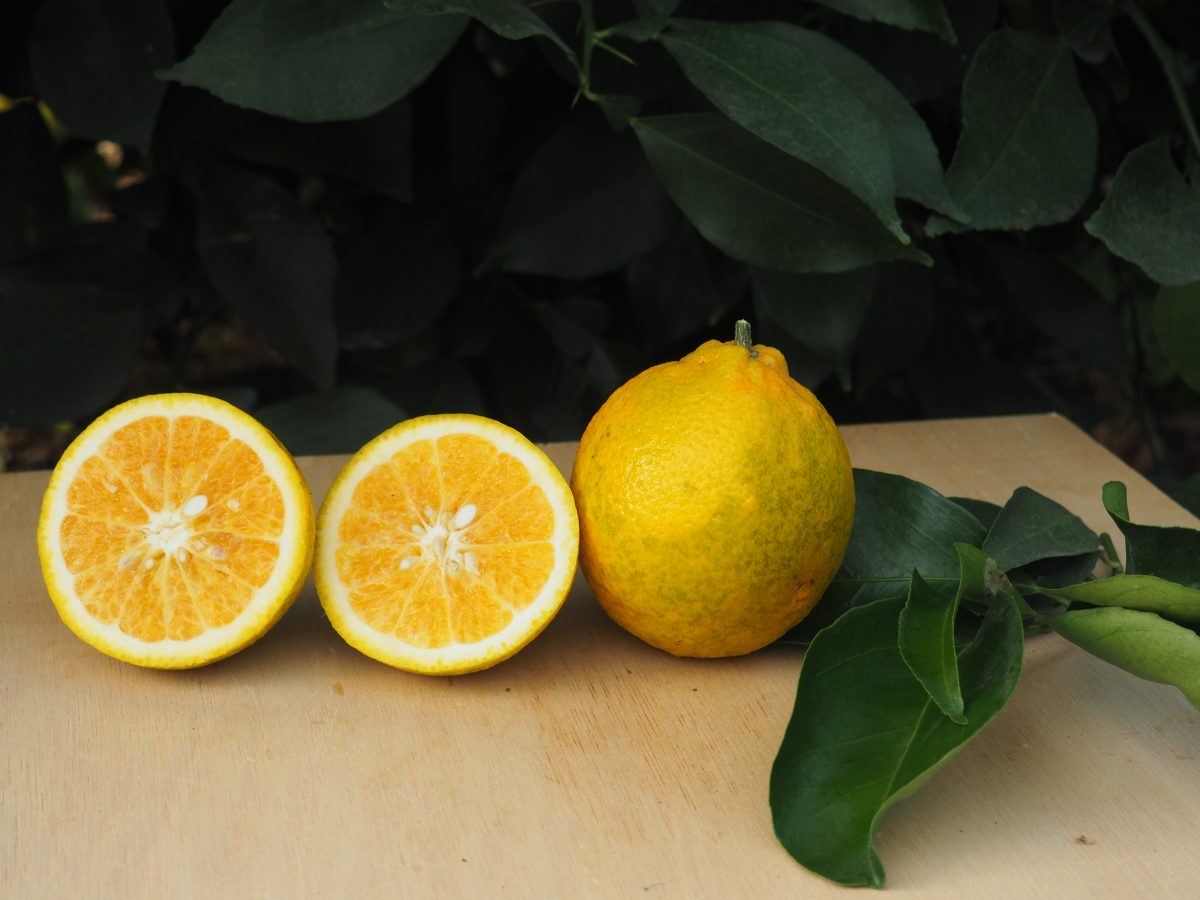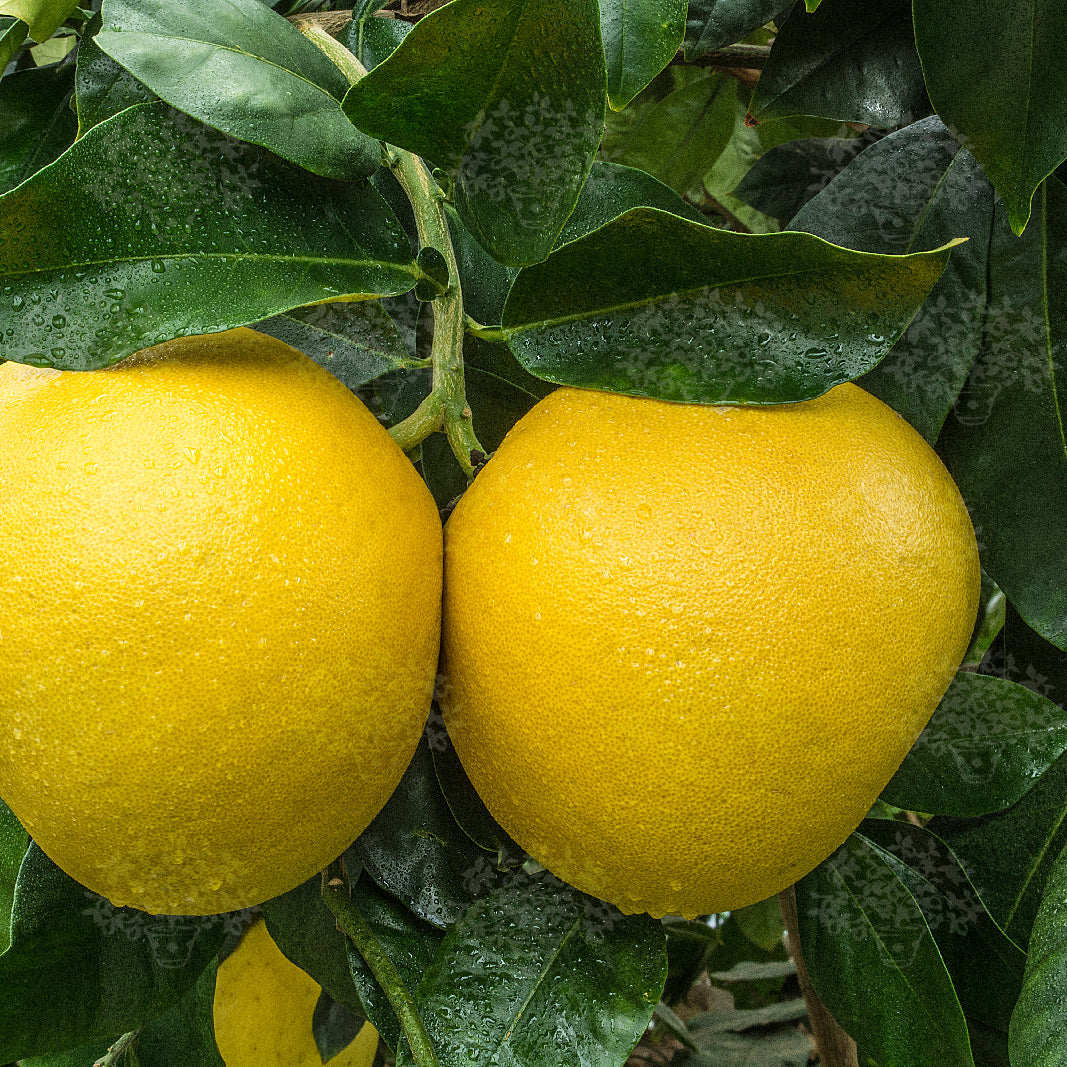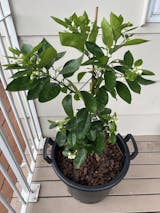Orangelo - Chironja (Super Rare)
- Regular price
-
$54.99 - Regular price
-
- Sale price
-
$54.99
Couldn't load pickup availability
Introducing the Chironja tree – a remarkable new addition to New Zealand, now available exclusively at Flying Dragon Nursery!
The Chironja brings the best of both worlds in a citrus experience. This unique fruit combines the size and shape of a grapefruit with the sweetness of an orange, making it perfect for eating fresh, juicing, or adding a refreshing twist to your favorite recipes. Its smooth, bright yellow skin is easy to peel, revealing tender, juicy segments of yellowish-orange flesh without any of the bitterness you’d expect from grapefruit.
Beyond its delightful fruit, the Chironja tree itself is a sight to behold. This vigorous grower is ideal for home orchards, featuring broad, winged, slightly cupped leaves that add an elegant touch. Its fruit grows individually, making harvest straightforward, and with the tree’s impressive size and productivity, you’ll have an abundant supply of delicious Chironja fruit each season.
Don’t miss this chance to be among the first in New Zealand to grow this exceptional citrus! Add the Chironja to your collection and savor the sweet, juicy flavors that make it truly unique.
Please note - When purchasing the Orangelo chironja variety from us, you are agreeing to a non propagation agreement. Please see the full agreement under the "our policies" section at the bottom of this page.
Citrus Care Tips
|
Watering: Citrus plants should be watered deeply once or twice a week, depending on the soil and weather conditions. Water the plant until the soil is evenly moist, but not waterlogged. Avoid letting the soil dry out completely, as this can cause the leaves to yellow and drop. |
|
Fertilising: Feed citrus plants with a balanced fertiliser (such as a 10-10-10 formula) every month during the growing season (spring and summer). Alternatively, you can use a slow-release fertiliser or a liquid fertiliser. Citrus plants also benefit from the addition of compost or well-rotted manure to the soil. |
|
Pruning: Prune citrus plants to remove dead or damaged branches, and to shape the plant as desired. Pruning also helps to encourage new growth and keep the plant healthy. Use clean, sharp pruning tools to make precise cuts. |
|
Pest control: Keep an eye out for pests such as aphids, mealybugs, and mites, which can damage citrus plants. These pests can be controlled through the use of natural methods such as introducing beneficial insects, or by using pesticides as a last resort |
|
Sunlight: Citrus plants need plenty of sunlight to grow and produce fruit. In most cases, a location with 6-8 hours of direct sunlight per day is ideal. |
|
Soil: Citrus plants prefer well-draining, slightly acidic soil with a pH of 6.0-6.5. If your soil is not suitable, you can improve it by adding compost or peat moss to increase the organic matter content. |
|
Pollination: Citrus plants are self-pollinating, which means that they do not need to be pollinated by another plant in order to produce fruit. However, the presence of bees and other pollinators can help to improve the quality and quantity of fruit. To attract pollinators, consider planting flowering plants near your citrus trees. |
|
Temperature: Citrus plants thrive in warm temperatures and can tolerate a wide range of temperatures, as long as they are protected from frost. |
|
Mulching: Mulch around the base of your citrus plant to help retain moisture and suppress weeds. Use a mulch that is well-draining, such as wood chips or pine needles. Avoid using a mulch that is too thick, as this can prevent water and air from reaching the roots. |
|
Pruning for fruit production: To encourage fruit production, prune your citrus plant to allow for good air circulation and sunlight penetration. Remove any branches that are crossing or rubbing against each other, as well as any branches that are diseased or damaged. |
| Pesticide use: If you need to use pesticides on your citrus plant, be sure to follow the instructions on the label carefully. Wear protective clothing, such as gloves and a mask, to avoid exposure. Avoid applying pesticides when pollinators are present, and wash your hands thoroughly after handling pesticides. |









